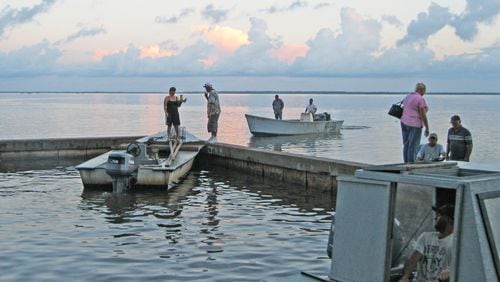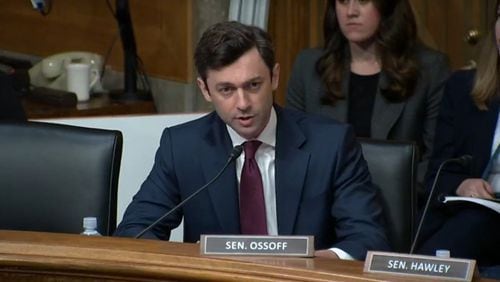Alabama, not surprisingly, is throwing its legal weight behind Florida in an attempt to keep Georgia from using too much of the Chattahoochee River.
A trial is set to begin Monday — Halloween — in Portland, Maine to determine whether Georgia, metro Atlanta in particular, hogs the Chattahoochee and Flint rivers to the environmental and economic detriment of downstream Florida.
In readying for the latest legal twist in the never-ending legal battle — 27 years long and running — Gov. Nathan Deal this week shifted another $2.5 million from his emergency fund to pay for lawyers. In all, Deal has set aside $24 million this year alone to fight Florida and, now, Alabama.
The U.S. Supreme Court agreed three years ago to hear Florida’s lawsuit which contends that Georgia does not allow an “equitable distribution” of the rivers. Alabama, a participant in earlier legal skirmishes in the so-called tri-state water war, filed a friend-of-the-court brief last week supporting Florida’s call for a cap on Georgia’s water use.
Florida wants as much as 40 percent more water from Georgia during a drought, the lawsuit says. Alabama’s brief calls a cap “appropriate.”
Alabama, also involved in a legal spat with Georgia over the Coosa River, has earlier taken on the U.S. Army Corps of Engineers which allows Metro Atlanta to pull copious amounts of water from Lake Lanier, a federal reservoir.
“As the population of metropolitan Atlanta has grown, Georgia largely has chosen not to invest its resources in reservoirs and other infrastructure that would facilitate the area’s water-supply demands,” Alabama wrote.
And, in an ominous prelude to additional water war litigation, Alabama says a cap on the Flint might not be the only water-resource harm coming Georgia’s way.
“Such a cap would not preclude Alabama from filing its own equitable apportionment action against Georgia should the need arise in the future,” the brief says. “In that equitable apportionment action Alabama could seek, among other relief, an additional cap on Georgia’s consumption from the Chattahoochee.”
About the Author







